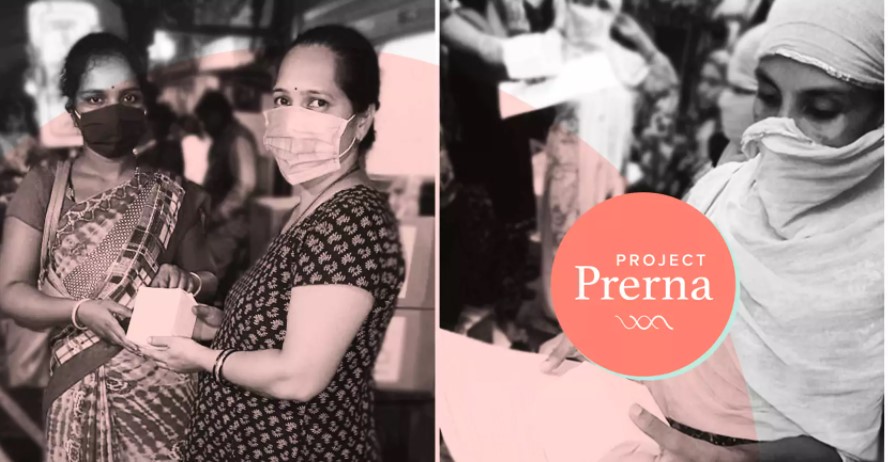Menstrual Hygiene is still a less-talked issue in India. On one hand there is lack of awareness regarding this wellness issue, on the other hand a large section of underprivileged women do not have access to menstrual hygiene products. While many corporates came forward to help COVID affected people in multiple ways, here is a company which focused its energies on menstrual hygiene.
Nua which produces and sells sanitary pads put more energy to make the sanitary napkins accessible to a greater number of women, heightened its efforts over last 9-10 months. Nua’s Chief Operating Officer, Abhishek Ramanathan talks to TheCSRUniverse on the company’s initiatives, its collaborative approach towards solving the problem of ‘period poverty’, and more on this issue…
Interview with Abhishek Ramanathan - Chief Operating Officer, Nua

Q: Tell us about your enterprise and its journey so far?
A: Nua is a new-age brand transforming the women’s wellness space in India with holistic and personalized solutions that address real problems faced by women in managing their menstrual health and personal hygiene. Nua has developed an innovative range of products and services that include India’s first customisable pack of sanitary pads and self-heating menstrual cramp patches. Through a personalised customer care experience, Nua also fosters an impactful and growing community of over 200,000 women, making it the country’s largest and most engaged digital-first women’s wellness brand. At the heart of it, Nua re-imagines wellness that is centered and thought around women.
Q: You have started project Prerna. What is the core thought process behind it?
A: Period poverty has always been a major issue in India where a lot of underprivileged women do not have access to menstrual hygiene products. With COVID-19, it definitely got worse. As a team, we decided that we need to do our bit and help these women.
Our aim was simple - raise Rs 20 lakhs and supply 300,000 Nua pads to 30,000 women in urgent need who reside in the low-income neighborhoods of Mumbai. And we did exactly that thanks to the support from over 700 donors across the globe who helped us raise Rs 22 lakhs in just 4 weeks.
Q: Menstrual hygiene is a major health issue in India? What are the main reasons behind low use of sanitary napkins in India?
A: We believe that the biggest reason for low adoption of sanitary napkins is lack of education around and access to menstrual hygiene. We need them to understand that if they don’t practice good menstrual hygiene, they are at a huge risk of contracting diseases such as cervical cancer, urinary tract infection and Hepatitis B. Which is why, when we thought about Project Prerna, we were very clear from the beginning that this activity isn’t just about distributing pads. With a larger objective of improving menstrual awareness, a pamphlet in Marathi and Hindi was also distributed with each packet detailing usage instructions, hygiene and safe disposal practices.
Q: What are you doing to address key challenges related to menstrual hygiene in India?
A: Under our #NuaCares initiative, we have done activities before such as supplying pads during Kerala floods or building menstrual awareness in government schools in Karnataka. So, Project Prerna is not a one-off activity. We definitely want to keep working towards addressing issues around menstrual hygiene and education.
Q: Do you also collaboration with other organisations for Project Prerna? How?
A: For an activity like Project Prerna, collaboration and working with the right partners is key. So, we collaborated with The Municipal Corporation of Greater Mumbai, YWater India and Global Shapers helped us with on ground implementation and in reaching out to so many women in different parts of Mumbai. With MCGM’s support, we were able to help women migrant workers and low-income communities in Malegaon, homeless women and disabled women in Kamathipura, Grant Road, Ghatkopar, Saki Naka, and Chembur. We also distributed Nua pads to major COVID care centres in Navi Mumbai, slum communities in Colaba and adolescent girls in Dharavi. We chose to work with the Municipal Corporation of Greater Mumbai to have a direct impact in reaching out to these women in need.
Q: What was the response from the consumers and has this project been successful in sustaining the habit of shifting to sanitary napkins from cloth among women?
A: We got a lot of positive feedback from these communities. Many women in these areas had no access to basic essentials like sanitary napkins because of loss of income or due to restricted movement. Moreover, we also saw that they appreciated our efforts on educating them about the importance of menstrual hygiene.
Q: What is your message to your business competitors towards bringing awareness on menstrual hygiene among Indian women?
A: We hope that Project Prerna inspires not just our competitors but individuals and organisations to help improve access to menstrual hygiene in India. This should be an ongoing activity and shouldn’t depend on a reason like COVID-19 for them to do their bit in this area.













.jpg)



